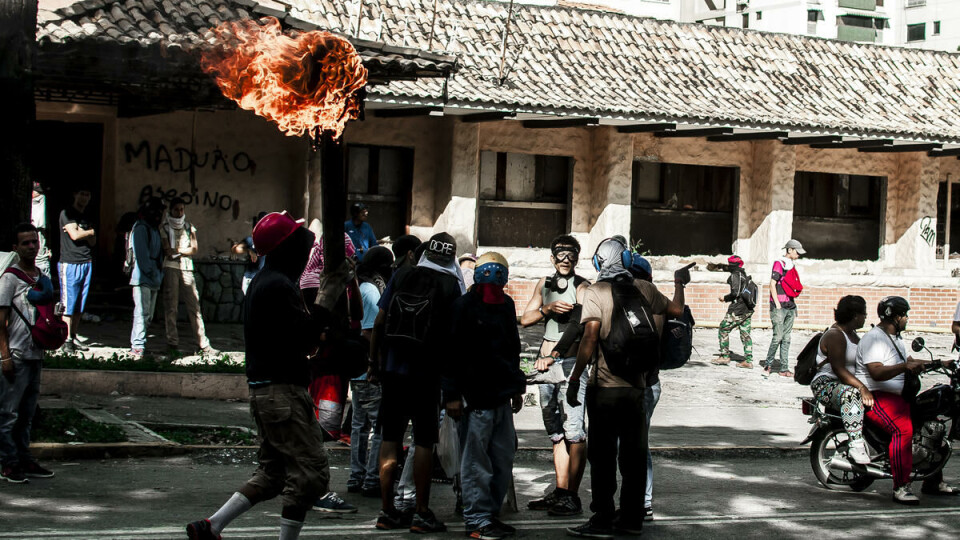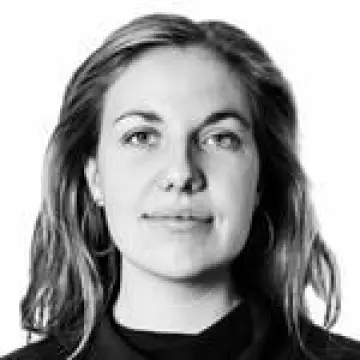
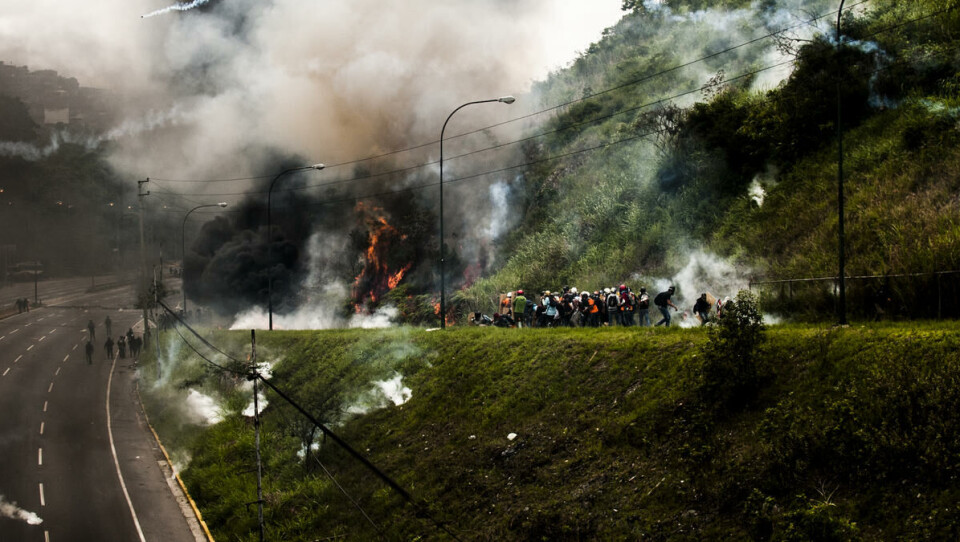
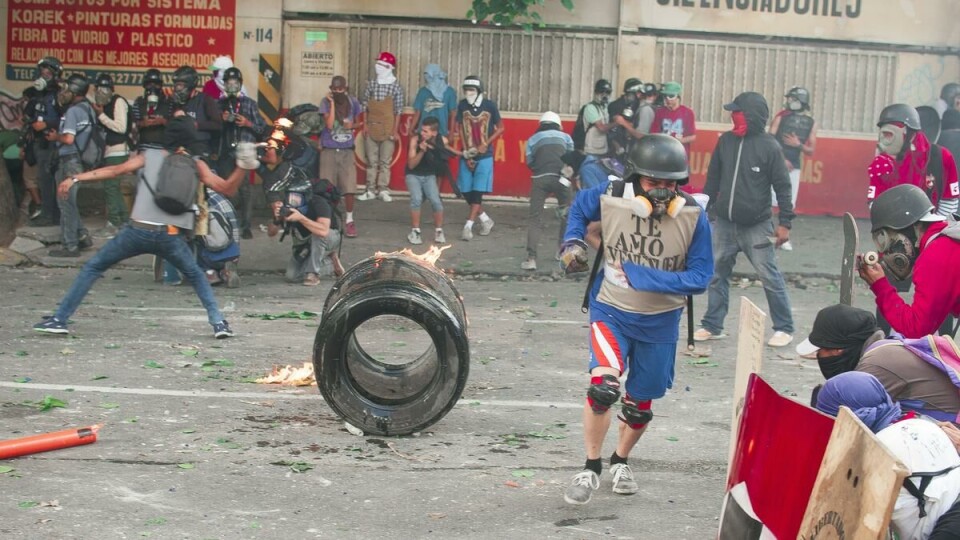
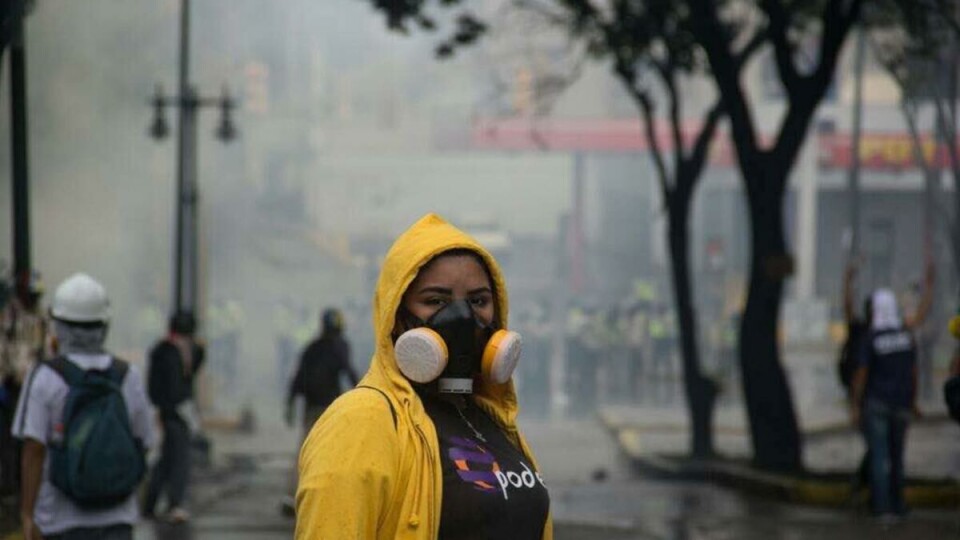
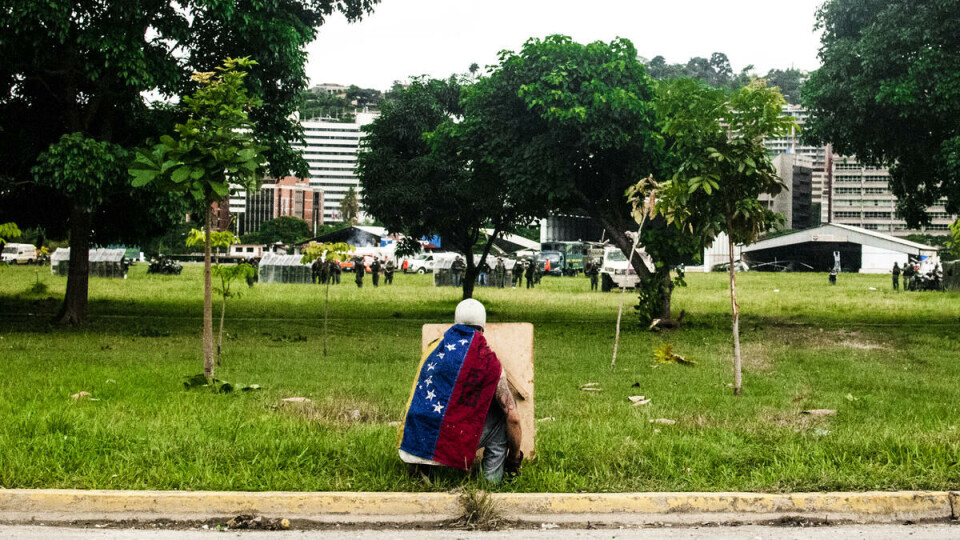
University versus regime
Students and academics in Venezuela are defying a ban on protest in order to keep the last independent universities from falling into the hands of the regime.
In recent months Venezuela has been strongly affected by street battles and massive protests against the country's regime. As a result of President Nicolás Maduro's protest ban and brutal attacks on participants of the uprising, some 60 students have been arrested. Now Venezuelan students fear the universities will fall under Maduro's control.
«My greatest concern is that the independent universities lose their independence,» said Antulio Rosales.
Rosales will come to the Center for Environment and Development (SUM) at UiO this fall to research his homeland, Venezuela. Of the 24 public universities in Venezuela, only five manage their resources without government control – an independence that can mean anything from teaching art subjects to offering students political asylum.
«President Maduro's security forces are not allowed to enter campus,» says Rosales.
That could come in handy at a time when the President has turned the security forces on their own people.
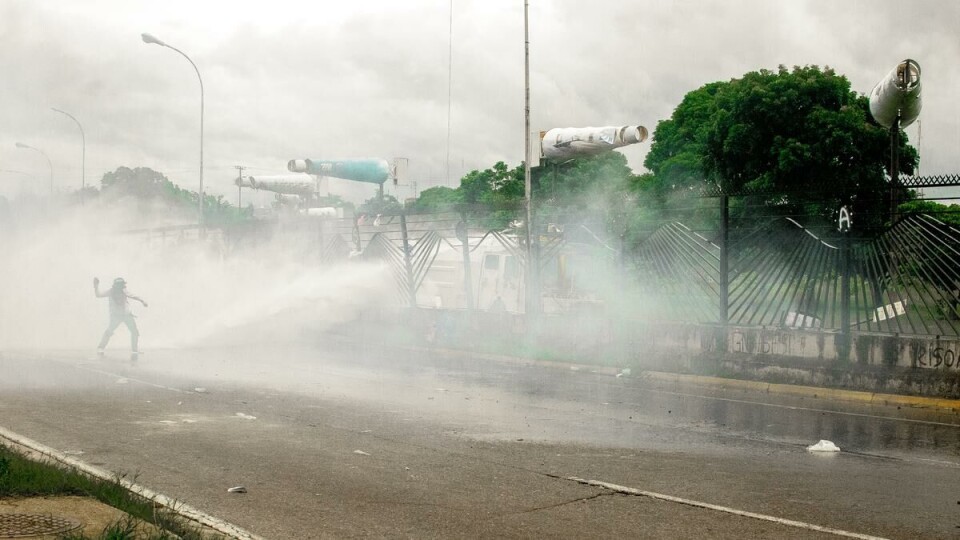
University in opposition
The majority of the country's students have found their place side by side with the liberal opposition, where strong business interests also are important driving force. According to Rosales, the students' choice of alliance has to be understood through the lens of their social background.
«The large and public universities have extensive admission requirements, which in turn have become a kind of filtering: almost exclusively middle class students are accepted, where the opposition is strong,» explained Rosales.
«In addition to this, when the education policy the last eighteen years has been anti-academic, this has only reinforced the dissatisfaction that was there to begin with,» he added.
Although President Maduro was praised for opening the university doors to the poor in Venezuela, Rosales is not all positive. Maduro's predecessor, Hugo Chávez, conducted several social programs that were very popular among the poor population.
We are the most important university in the country, and the face of an entire student movement.
Now, with a shaken economy and a country heading towards dictatorship, it has become difficult for Maduro to maintain this support. Thus believes Rosales it is a highly strategic move by Maduro to invest heavily in state run universities and education centers.
«Even though it pays a historical debt to the country's poor, it also means that the government has direct control of these universities. That in turn means they have hundreds of thousands of students [under their control] who are activists agitating for the regime,» Rosales said.
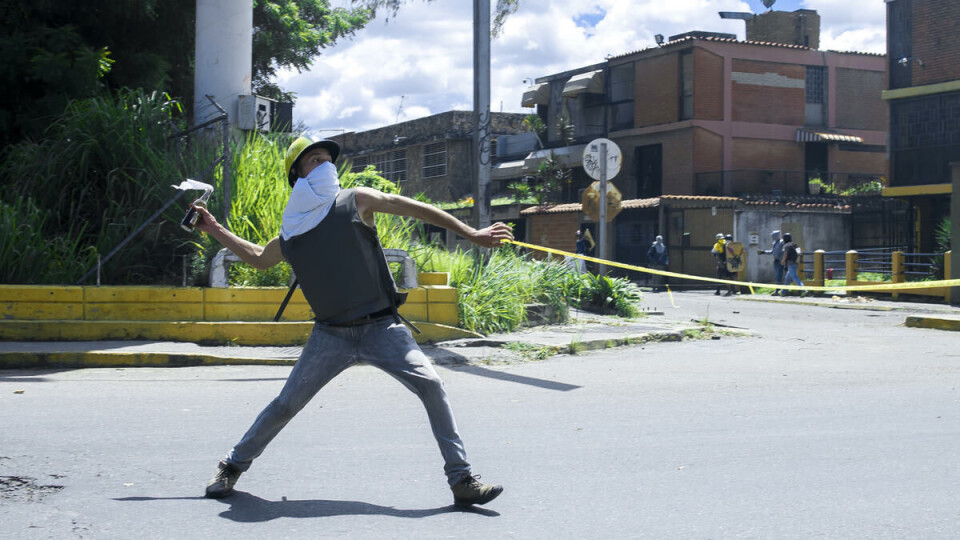
Next generation politicians
This is not the first time the student movement in Venezuela has protested against the country's socialist regime. In 2007, the student movement launched a revolt against then President Hugo Chávez, for trying to close the country's last private TV channel amongst other things. According to Rosales, several important politicians on both sides of the conflict came from that generation.
«Students are an important driving force, but for good and bad,» he said.
He understands the importance of student engagement, but says he also wishes to see them try to bring the population closer together rather than divide it. Since April, at least 125 people have lost their lives in the clashes.
«I do not think anything good can come from the violent battles. Maduro's government can use violence against those who demonstrate to justify a much harder oppression,» Rosales said.
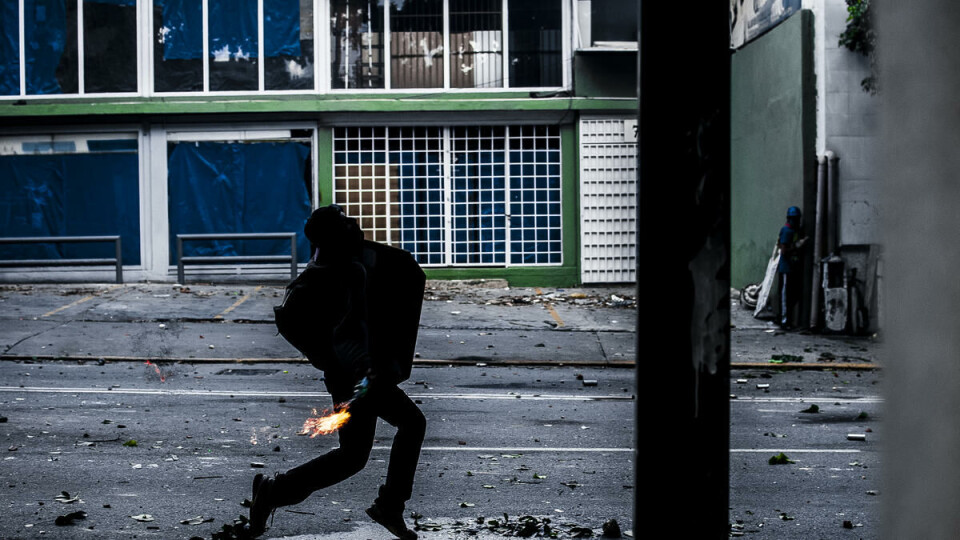
Students fight
19-year-old Yaraní Acosta attends the Central University of Venezuela (UCV), and says she has spent her entire time there protesting President Maduro. She saw a fellow protester get shot, and had gas bombs thrown after her on several occasions. However, Acosta stressed that the university does far more than participate in violent protests.
«We hold meetings, listen to communities, and create art. We hosted the largest neutral polling station for people to vote in the referendum on the constitutional audit,» she pointed out. «We are the most important university in the country, and the face of an entire student movement,» she added. «It is a huge responsibility that we take on with the greatest respect.»
In May, Universitas spoke with student Paulette Mafhoud, who is also studying at UCV in the capital. Like Rosales, her greatest concern is that independence is being taken from the universities, and she fears this will be the end of Venezuelan academics. She believes students worldwide share the responsibility of protecting research and educational freedom.
«Students are the strongest voice of any society, regardless of the country. We are the future and the present, at one and the same time,» Mafhoud said.
